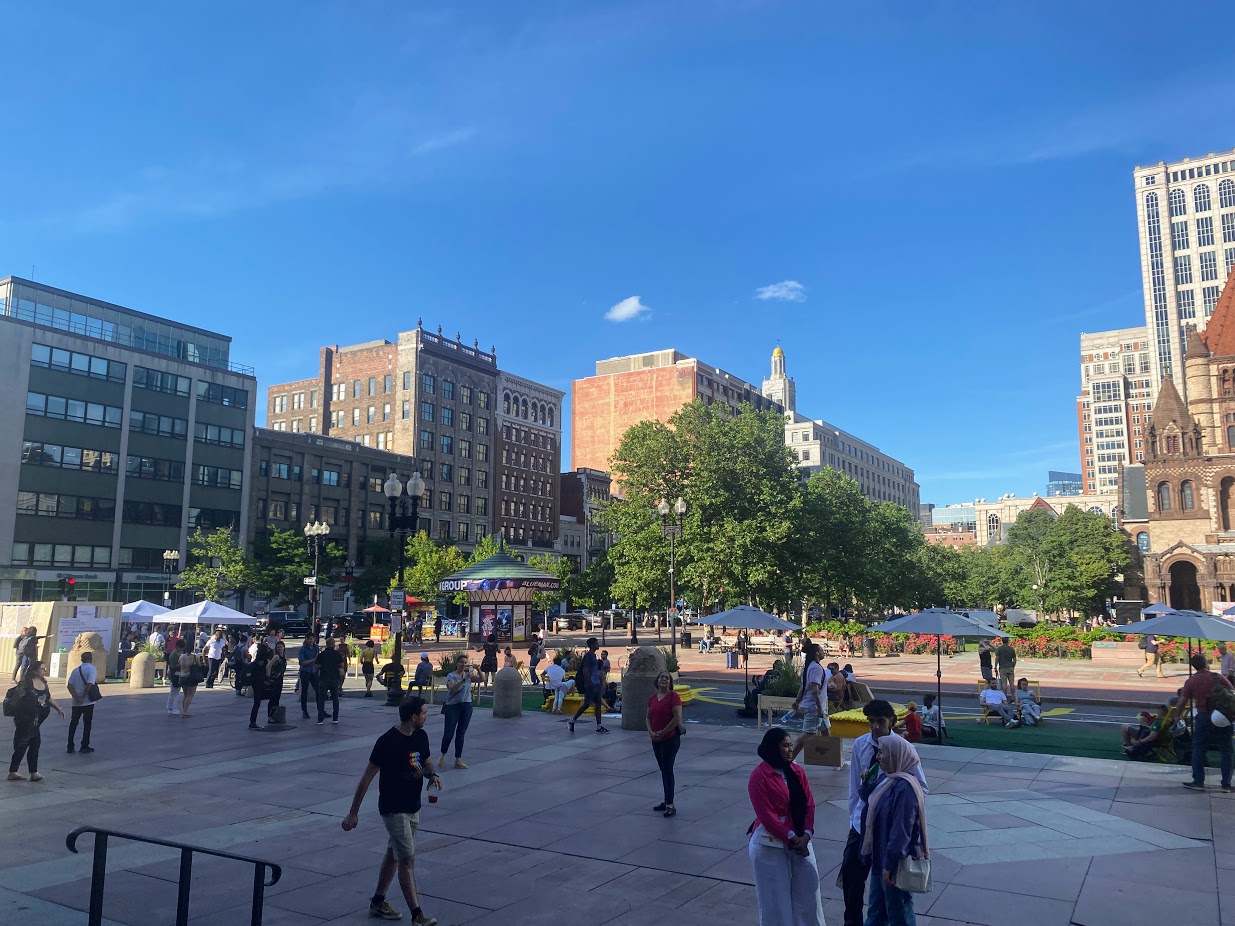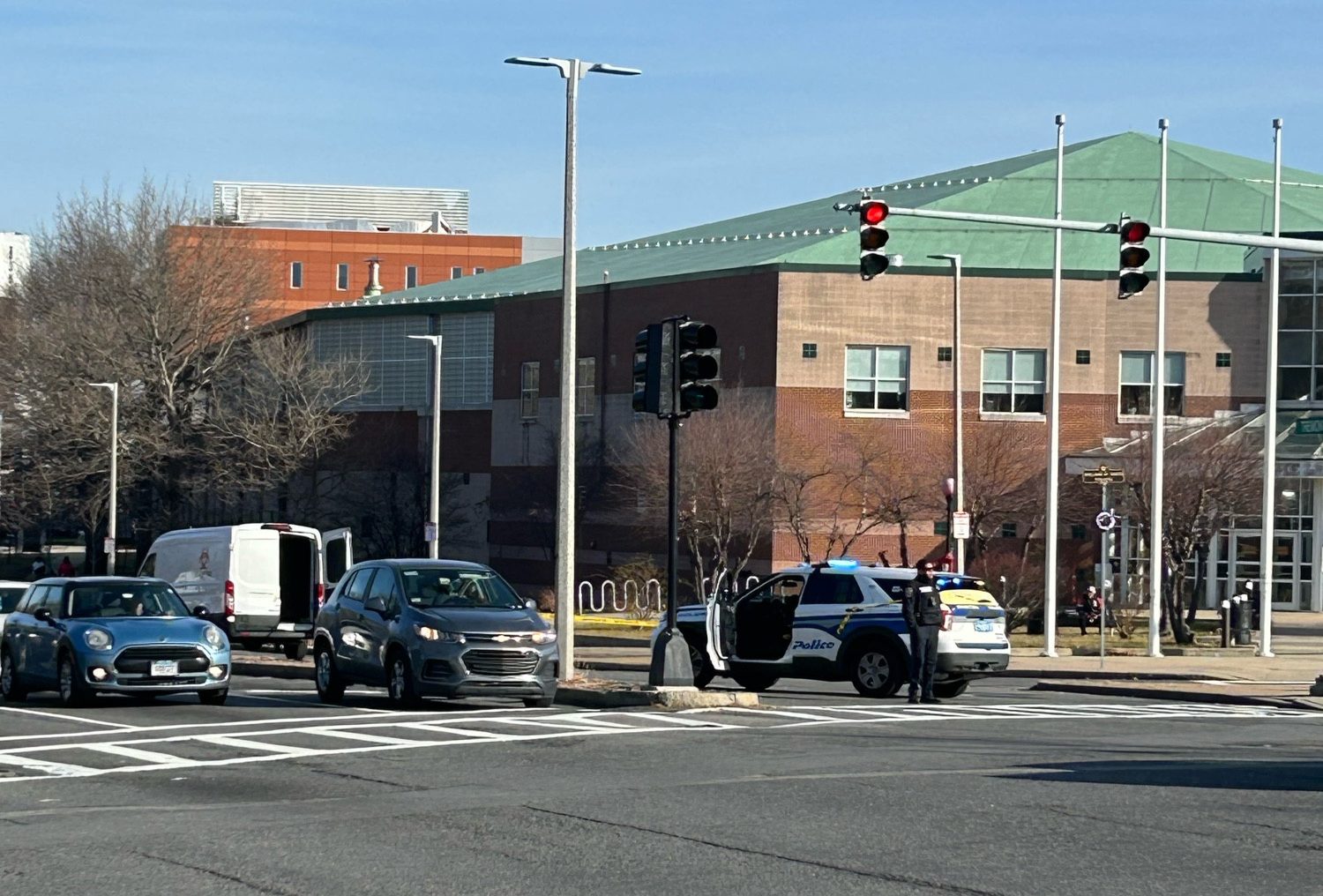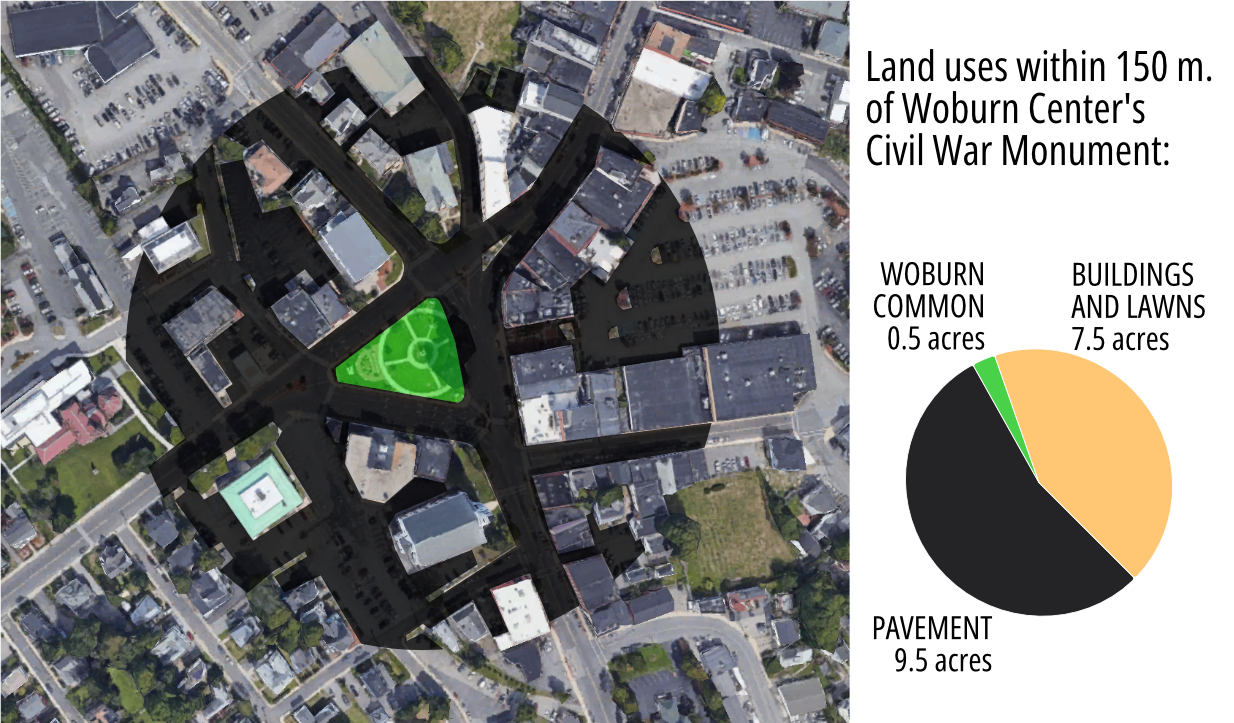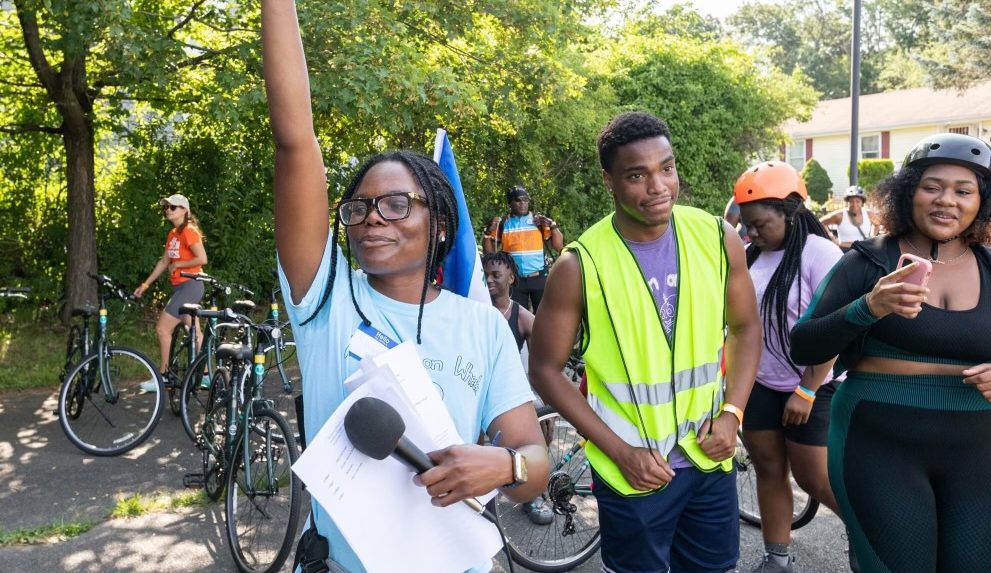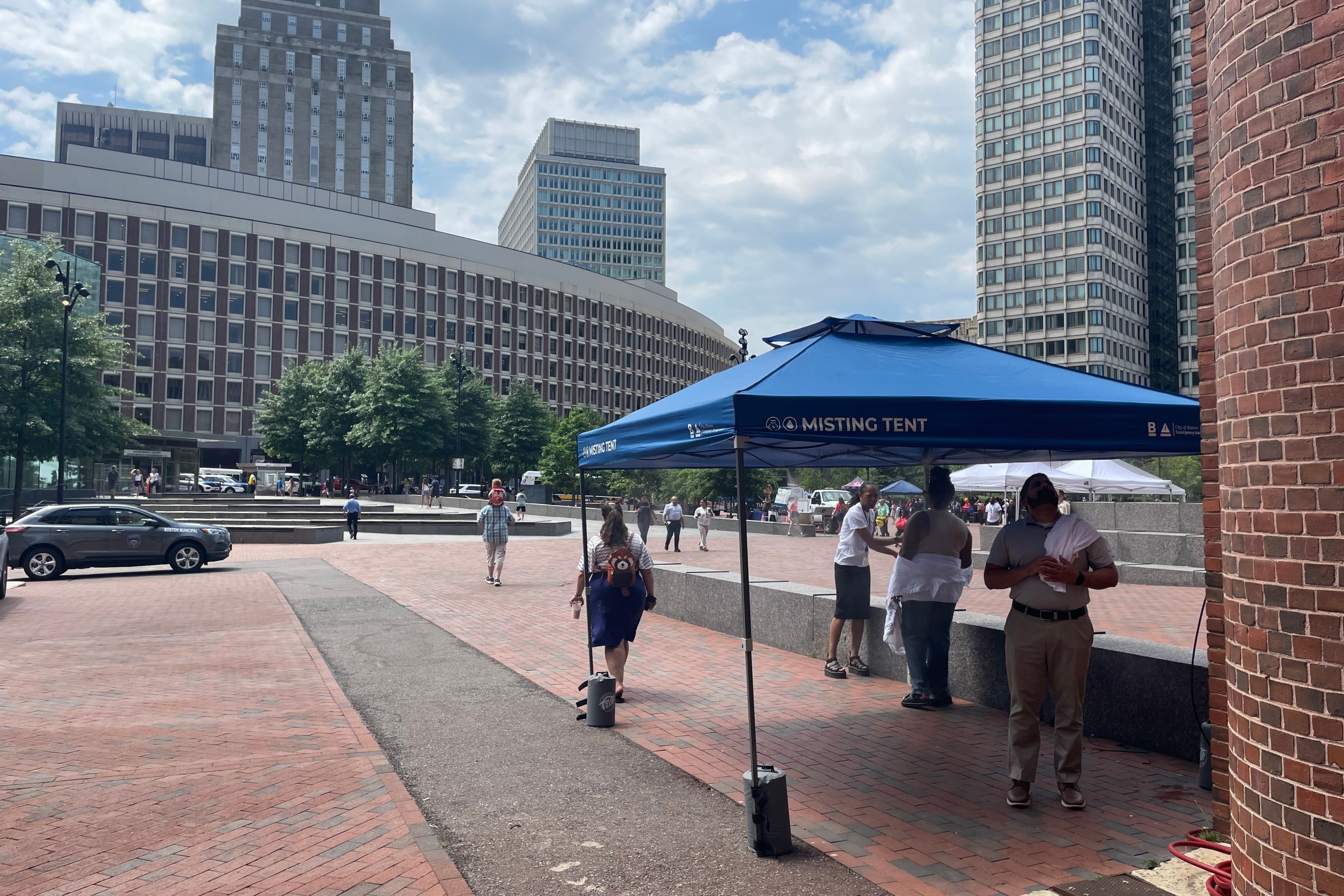The City of Boston's planning and transportation agencies have concluded that last year's "Copley Connect" pilot project, in which the city opened up the space on Dartmouth Street between the public library and Copley Square as a pedestrian-oriented, car-free public space for 10 days last summer, was a "success" with "overwhelmingly positive" support from the public.
The Boston Planning & Development Agency (BPDA) and Boston Transportation Department (BTD) are now planning to study "permanent improvements to Dartmouth Street between the Boston Public Library and Copley Square Park that would improve the public realm between three of Boston's most iconic civic spaces and formally unify Copley Square," according to a BPDA press release sent to reporters on Thursday.
The press release accompanies a new website where the city published detailed data and analysis from the 10-day pilot. Among the key findings:
- 72 percent of survey respondents expressed a "very positive" opinion about making the car-free plaza permanent.
- Foot traffic outnumbered car traffic at several nearby intersections on Boylston and Newbury Streets during the pilot – especially on weekends.
- Survey respondents said that they spent more time in Copley Square during the open streets pilot event than they typically would.
- During the pilot, car traffic decreased considerably on Dartmouth Street north of Copley Square, while a few streets, like Berkeley Street, Stuart Street, and Ring Road, saw modest increases in car traffic as people in cars sought other routes north into Back Bay.
- An analysis of travel times for motor vehicles concluded that "on days with higher-than-average congestion, drive times were generally as good or faster during Copley Connect than travel times before and after the event."
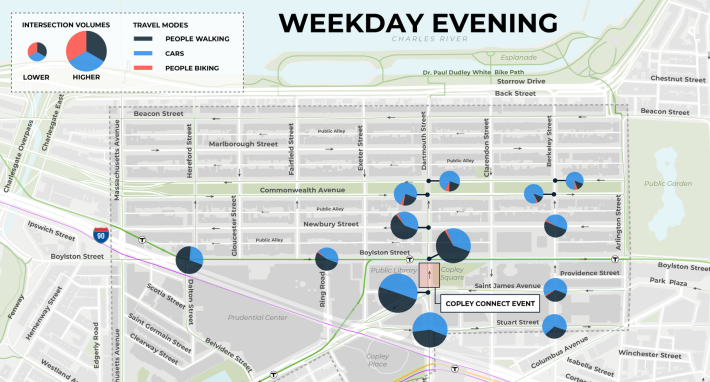
“We saw this summer how Copley Connect brought people together to build community and opened up biking and walking without substantially adding to traffic,” said Mayor Michelle Wu in the BPDA's press release. “The data shows that open streets can spark economic and community vibrancy when we make them safe.”
At Thursday's regular monthly meeting of the BPDA Board of Directors, BPDA staff will request a $100,000 authorization to hire consultants to work on a "Copley Connect Long-Term Strategy." According to the meeting agenda, this study "will identify a preferred concept for the redesign of Dartmouth Street and identify ancillary changes to nearby streets, as needed."
The BPDA proposal also mentions the Boston Parks Department's plans for Copley Square, where the city is planning a redesigned plaza with more trees, accessible seating, and upgraded walkways.
In the course of redesigning the plaza, planners also expressed a strong desire to improve the connections between Copley Square and the Boston Public Library across the Dartmouth Street right-of-way.
